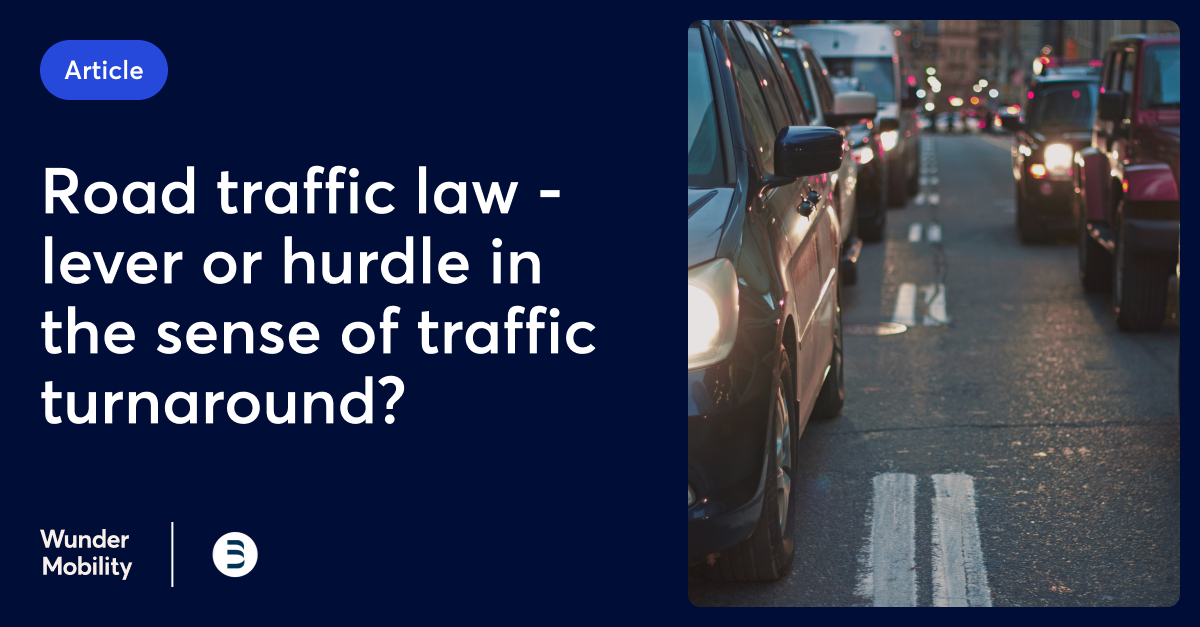Read this article in German.
For several years now, transport turnaround has become the buzzword of transport policy and no election program can be imagined without it. With the coalition agreement, the traffic light government has also formulated high demands and wants to “enable sustainable, efficient, barrier-free, intelligent, innovative and affordable mobility for all.” In addition to the financial framework, the legal framework also plays a major role, because it is not only municipalities but also federal legal requirements that are responsible for the cities of today looking the way they do.
Laws from another time
For example, it will be necessary to examine whether the 2020 amendment to the German Road Traffic Act (StVO) is sufficient to enable the cities of the future to be designed with the traffic of the future. For this purpose, the Road Traffic Act (StVG), the Road Traffic Regulations (StVO) and the Administrative Regulation on the Road Traffic Regulations (VwV-StVO) in particular should be looked at more closely, because when these regulations were created, the focus of politics was only car traffic. For a comprehensive reform of road traffic law, German states would also have to follow suit. Newer forms of mobility are only gradually gaining the attention they deserve. The discussion about the 9-euro ticket is a good opportunity to look at the role of cycling, walking and local public transport. After all, society now has much higher expectations in terms of climate, environmental and health protection. The goal of a so-called Vision Zero, i.e. to prevent accidents and injuries to all road users, should therefore be included as an objective in the StVO. Time is of the essence here, because regardless of whether minor changes are made to the StVO or a major reform of the StVG comes into place, a lot of time will pass before the results reach the state level and are put into practice by local authorities.
Privileging the weaker and environmentally friendly road users
If the federal government’s self-imposed climate goals in the transport sector are to be achieved, then there needs to be a clearer change of direction and incentivization of environmentally friendly and shared forms of mobility. Whether micro mobility (e-scooters, Segways, etc.), bus and rail transport, or cycling and walking, they all need more space in public areas. Therefore, municipalities should be legally obligated to establish bus lanes, cycle lanes, bicycle lanes, car-sharing parking spaces, charging stations and e-scooter parking spaces when certain thresholds are reached (number of inhabitants, number of public transport users, etc.). This also requires the appropriate personnel and financial resources. Traffic counts and accident statistics should no longer be necessary to prove the legality of bike lanes in court. This is the only way to create true equality of treatment for all road users. Because the StVG’s claim to treat everyone equally does not do justice to the weakest and most sustainable road users.
Keep following the debate on German traffic regulations and how they can be improved to embrace all kinds of mobility. Want to know more about the future of mobility and the policies that will affect it? Check out our blog and follow us on LinkedIn for updates.
